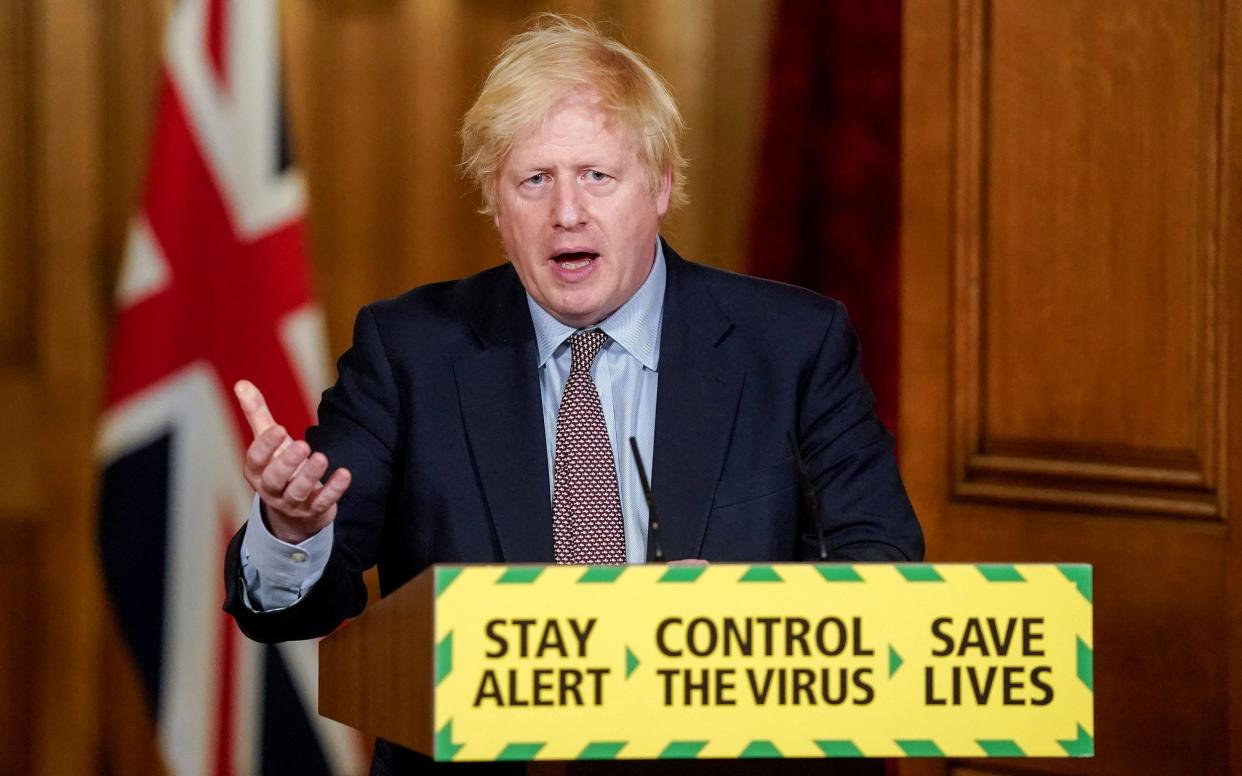Boris was right: the WHO treaty makes the world safer

- Oops!Something went wrong.Please try again later.
The world is on the verge of forging a generational pact to protect all countries from a repeat of the terrible losses inflicted by Covid-19. This essential effort, launched by the United Kingdom and the 190-plus member states of the World Health Organisation over two years ago, is about ensuring all people, everywhere, are better protected when the next pandemic comes.
There are elements of opinion within our country, and others, who, despite the evidence, continue to claim that the proposed global pandemic agreement is an attack on national sovereignty and a tool to enforce population-wide immunisations, mask mandates, and lockdowns.
In fact, the draft agreement states: “Nothing in the WHO Pandemic Agreement shall be interpreted as providing the WHO Secretariat ... any authority to direct, order, alter, or otherwise prescribe ... national laws.”
Numerous references within the agreement reinforce this truth, that sovereignty over national health decision-making rests with national governments. The agreement states that the WHO has no power “to mandate ... that parties take specific actions, such as ban or accept travellers, impose vaccination mandates ... or implement lockdowns.” At no point in the negotiations has the WHO sought such powers.
On Tuesday, in the House of Commons, the Conservative minister responsible for UK negotiations on the agreement, Andrew Stephenson, forcefully corrected those who claim the WHO will commandeer or seize vaccines and other equipment from governments without their agreement. He stated: “Countries are discussing a voluntary mechanism to which UK businesses could sign up, if they wish, to share vaccines in return for information they may need to develop their products.”.
Other claims by the accord’s critics do not withstand scrutiny. During no part of the negotiations has the WHO sought powers to monitor people’s movements or to deploy armed troops to enforce mandatory vaccinations and lockdowns.
The first call for a global pandemic agreement was made by Boris Johnson in this newspaper. Then, Mr Johnson, supported by 26 world leaders, wrote that an accord on pandemics “should lead to more mutual accountability and shared responsibility, transparency, and co-operation within the international system”, adding that “pandemic preparedness needs global leadership for a global health system fit for this millennium”.
The world leaders compared the agreement they sought with the settlement forged in the aftermath of the Second World War.
And yet while Boris Johnson described Covid-19 as “the biggest challenge to the global community since the 1940s”, too many of his supporters seem to have forgotten just how vulnerable each and every country was during Covid-19 and how we all rightly said: “Never again.”
During the height of the pandemic, don’t we recall how the United Kingdom, as a sovereign state, promoted public-private collaboration to develop the life-saving vaccines to protect against Covid-19? Did we not say that if we had vaccinated the poorest parts of the world more quickly, we might have avoided later phases of the pandemic?
It is only by forgetting the damage that inadequate international collaboration inflicted that we can now contemplate turning inwards.
Countries sure in their standing in the world demonstrate their sovereignty through co-operation, not isolation, and work with global partners where there is common interest and shared benefit. In the 1960s, President Kennedy delivered the first global nuclear test ban treaty. In the 1980s, Gorbachev and Reagan secured the biggest ever global reduction in nuclear arms. In 2009, the world came together to prevent a global recession from becoming a global depression. Global solutions to global problems.
The world doesn’t know when the next pandemic will threaten us, but by having the courage to act now we will protect future generations. We would be remiss if we forget the definitive lesson of the past few years: when a pandemic threatens, no one is safe anywhere until everyone is safe everywhere.
Rt Hon Gordon Brown served as Prime Minister from 2007-2010

